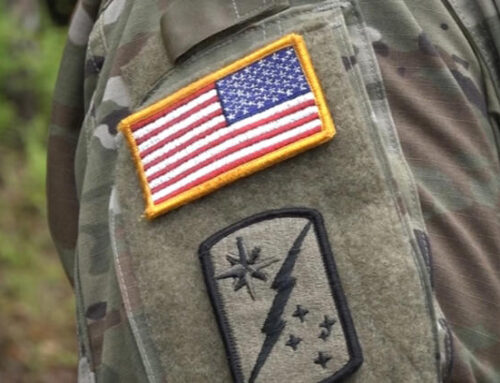Propaganda and public opinion
Published: 31 August 2022
In the first months after the U.S. entered the war, many Americans still did not fully support the decision to join the conflict. President Woodrow Wilson created the Committee on Public Information to encourage the American people to support the war effort. The Committee produced articles, posters (right), pamphlets, movies, speeches and rallies that promoted the Allied cause and painted the Central Powers (especially Germany) as ene- mies of democracy and civilization.
In addition, Congress passed two laws of questionable constitutionality. The Espionage Act gave the government broad powers to inspect communications by mail. The Sedition Act made it illegal to even speak against the war effort or the U.S. Government. Both laws were challenged in court; at the time, both were upheld by the Supreme Court as necessary for the war.
These measures fueled strong anti-German sentiment. German-Americans faced harassment and abuse; many changed their names to more English-sounding versions. In the hysteria, sauerkraut was renamed “liberty cabbage”, dachshunds were called “liberty pups” and even German measles became “liberty measles.”



